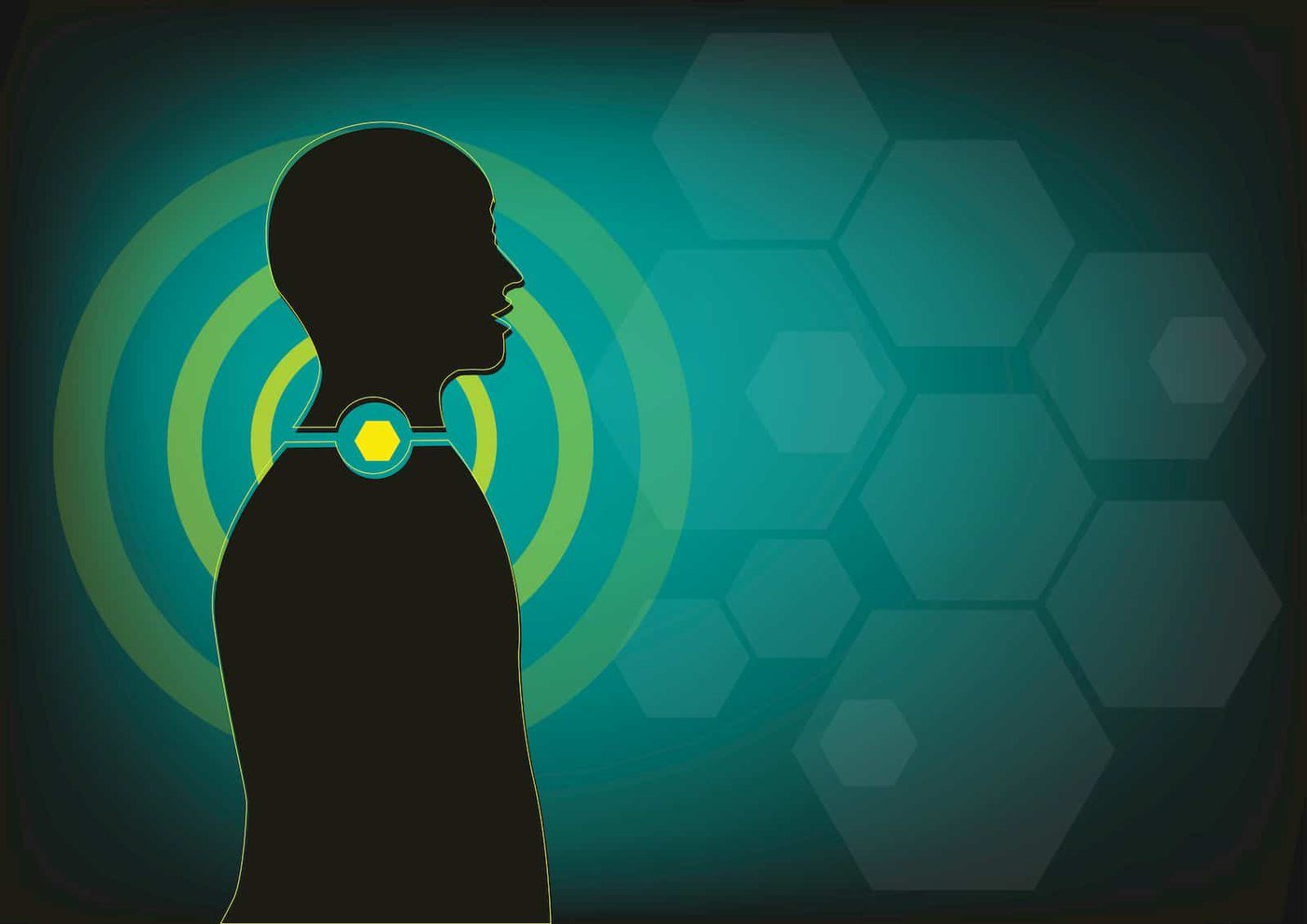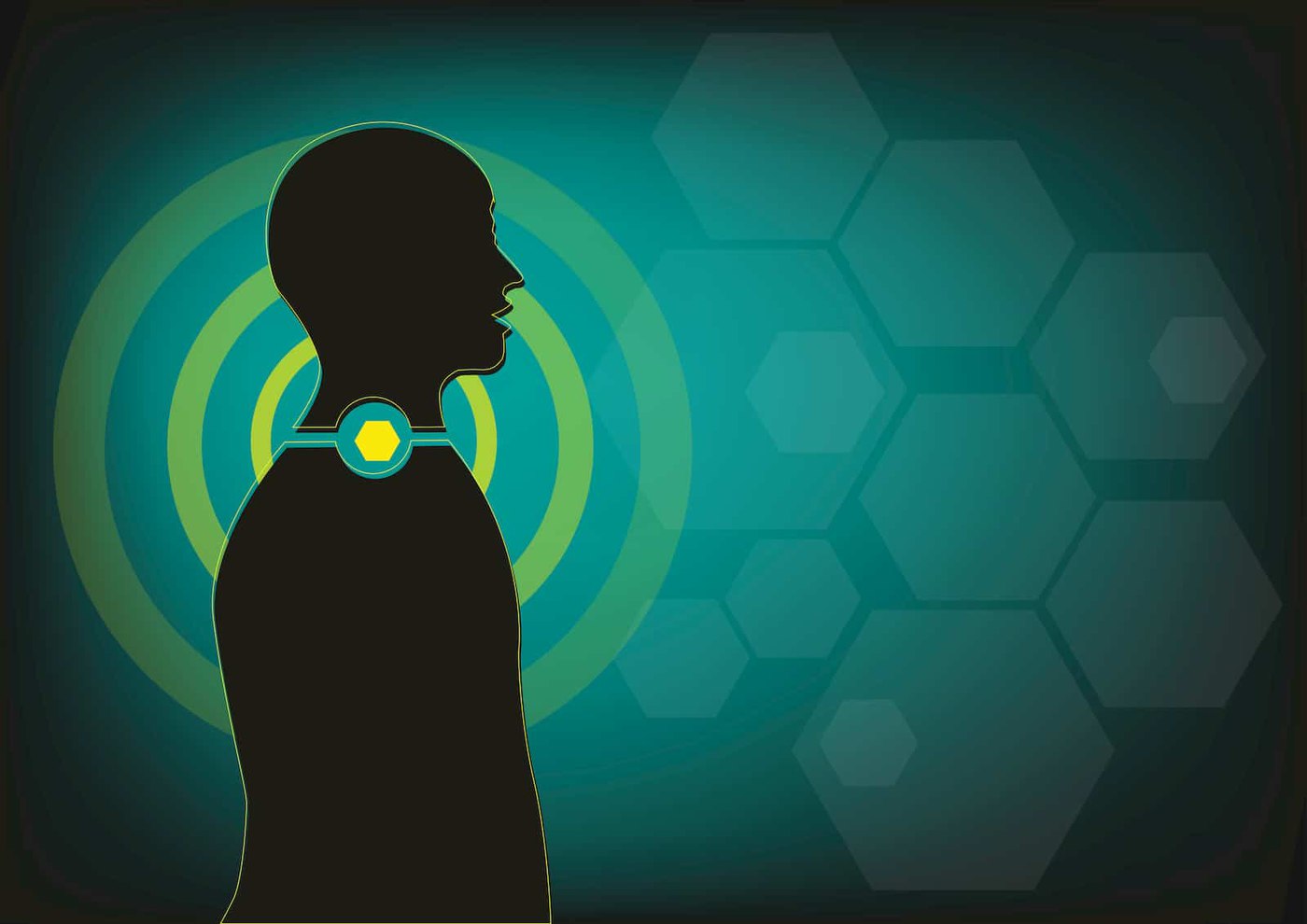Laryngopharyngeal Reflux Disease (LPRD): Symptoms, Causes, and Treatment
September 22nd, 2020 | 4 min. read


If you've ever had too much beer and pizza, you're probably familiar with the uncomfortable feeling of acid reflux. The hallmarks of reflux are chest pain, nausea, and heartburn. However, there's another condition you should familiarize yourself with — laryngopharyngeal reflux disease (LPRD).
What Is Laryngopharyngeal Reflux Disease (LPRD)?
Laryngopharyngeal reflux disease is a condition where acid from your stomach makes its way up to your swallowing tube (esophagus) and gets into your throat. Symptoms aren't that obvious, but typically include an irritated voice box (larynx) and a sore throat. Generally, treatment consists primarily of lifestyle changes.
Laryngopharyngeal Reflux Disease Signs and Symptoms
The symptoms and signs of LPRD are unmistakable when you do notice them, but again, for some, they're not so obvious. They're often silent.
Signs and symptoms of LPRD might include:
- Chronic cough
- Continual throat clearing
- Dysphagia (trouble swallowing)
- Chronic throat irritation
- Constant sensation of something in your throat
- Hoarseness
- Excessive phlegm in your throat
- Weak voice
- Post-nasal drainage
- Cracking voice
- Swallowed food comes back up
- Heartburn
- Spasm of your voice box (larynx)
- Blockage of your breathing passage
- Wheezing
Laryngopharyngeal reflux disease in adults can cause complications like emphysema, asthma or bronchitis. With LRPD, adults might have a burning sensation in their throat in the back, a bitter taste, or heartburn. But they're less likely to experience such GERD classic signs. More frequently, adults experience more vague symptoms that might be easily confused with other issues.
Complications of LPR
Stomach acid that pools in your larynx and throat could cause long-term damage and irritation. When you leave it untreated, it can be serious.
Laryngopharyngeal reflux disease in children and infants could cause complications like:
- Contact ulcers
- Narrowing of the space below the vocal cords
- Lasting middle ear fluid buildup
- Recurrent ear infections from issues with eustachian tube function
Causes of Laryngopharyngeal Reflux Disease
You have a sphincter (ring of muscle) at both ends of your esophagus. Generally, these keep your stomach contents in your stomach - where they belong. But with LRPD, these sphincters aren't working properly. Stomach acid starts backing up into your pharynx (back of your throat) or larynx (voice box). Sometimes it could even back up into your nasal airway. It could cause inflammation in areas not protected from gastric acid exposure.
Laryngopharyngeal reflux disease is common in infants since they have undeveloped sphincters, their esophagus is shorter and they lie down most of the time. It's not known what causes it in adults.
Individuals of any sex and age could develop LRPD. However, some individuals might have a greater chance of developing it.
Risk factors of LRPD include:
- Lifestyle factors like overeating, diet or alcohol or tobacco use
- Pregnancy
- Physical causes like a malfunctioning or deformed esophageal sphincter, being overweight or slow emptying of your stomach
Infants and kids might experience reflux more often as their lower and upper esophageal sphincter muscles don't close because they're not strong enough. This might improve as they get older.
Interested in an evaluation for Laryngopharyngeal Reflux Disease?
Click on the image below to request an appointment with the Houston Voice Center today!
Treatment options for Laryngopharyngeal Reflux Disease (LPRD)
If you suspect you are dealing with LPRD, it's important to schedule an appointment with a doctor. It's definitely worth having a heartburn issue looked at, particularly if you're suffering from symptoms more than two times a week for more than a few weeks.
To come up with a diagnosis, the doctor will conduct a thorough examination. This will likely include:
- The doctor requesting symptom history
- The treatments you have tried
- When your symptoms are likely to show up
While your primary care physician might be able to provide you with a diagnosis, if they feel you'll benefit from obtaining a second opinion, they might refer you to a specialist. This type of specialist specializes in diagnosing and treating gastrointestinal tract diseases.
Also, if you have LPRD and damage and scarring from it, your physician will likely give you a referral to an otolaryngologist, like one of ours at Houston ENT & Allergy Services. Otolaryngologists are ear, nose, and throat doctors that can treat reflux damage.
The doctor might request an endoscopy to see how bad the damage is. During this test, they'll insert a lighted tube and camera into your esophagus and throat through your mouth to measure the damage and decide on a treatment plan.
Most LPRD cases don't require medical care and are easily managed with lifestyle changes, which include:
- Lose weight
- Follow a bland diet (low in fat, low acid levels, not spicy)
- Avoid tobacco, alcohol, and caffeine use
- Eat small, frequent meals
- Raise the head of your bed before you sleep (place a solid, strong object (i.e. a board) under your mattress's top portion to prop your head and upper part of your body up, helping to keep the backup of acid from your stomach in your throat)
- Don't consume food less than a couple of hours before bedtime
- Don't clear your throat
You might also require a medicine like:
Proton Pump Inhibitors
- Nexium (esomeprazole)
- Dexilant (asdexlansoprazole)
- Prevacid (lansoprazole)
- Aciphex (rabeprazole)
- Zegerid (sodium bicarbonate)
H2 Blockers
- Pepcid (famotidine)
- Tagamet (cimetidine)
- Nizatidine
Prokinetic Agents
These increase the GI tract's forward movement and increases lower esophageal sphincter pressure. These medicines aren't used often since they've been associated with negative effects like diarrhea and heart rhythm.
Sucralfate
This helps protect mucous membranes that are injured.
Antacids
These help neutralize acid and are often used for controlling heartburn symptoms.
Some individuals respond well to medical management and self-care. But, others require more lengthy and aggressive treatment. If this isn't effective or if you have recurring symptoms, the doctor might recommend surgery.
Fundoplication is a form of surgery where the surgeon wraps the upper portion of your stomach around your lower esophagus for creating a stronger valve between your stomach and esophagus. It's typically done laparoscopically using small surgical equipment, small surgical incisions, and a laparoscope to help them see inside. This type of surgery can also be performed with a larger incision through traditional open surgery.
Other methods could also be performed laparoscopically, which include placing a titanium beads ring around the outside of your lower esophagus to strengthen the valve while allowing food to get through.
Schedule Your Appointment With the Houston Voice Center
The voice and swallowing center at Houston ENT & Allergy specializes in the assessment and management of swallowing, voice, and airway disorders, including services for individuals with voice abuse and misuse, spasmodic dysphonia, professional voice demands, vocal cord paralysis, benign vocal cord lesions, cancer of the larynx and neurological swallowing and speech difficulties related to conditions like Parkinson's disease. The voice and swallowing team is led by board-certified otolaryngologist Michael P. Underbrink, MD, MBA, FACS, who has fellowship training in laryngology and voice disorders.
After the initial evaluation, we may arrange for diagnostic testing or specialist services if needed.
We also provide telemedicine services. We still keep our doors open for normal face-to-face visits, but also offer telemedicine services to make it safer and simpler in many circumstances. Contact us today to schedule your appointment.
Topics:
